 My talented friend Author Celia Yeary is here with me today to share the story behind Wish for the Moon, a book I’m very much enjoying–especially as it’s set in a place and time I know little about, and the characters are very well drawn. Now, I’m turning this post over to Celia.
My talented friend Author Celia Yeary is here with me today to share the story behind Wish for the Moon, a book I’m very much enjoying–especially as it’s set in a place and time I know little about, and the characters are very well drawn. Now, I’m turning this post over to Celia.
A Coal-Mining Ghost Town in North Texas? What happened?
“Thurber was, but Thurber ain’t no more.”
Thurber is a coal-mining ghost town in Erath County, Texas, located 75 miles west of Fort Worth.
 When my husband and I travel from Central Texas to North Texas on Highway 281, we pass under Interstate 20, which runs East-West. At that point there is a sign pointing west: Thurber-11 miles. After seeing this sign for several years, I wondered about Thurber, Texas, a small town I’d never heard of even though my place of birth was nearby. By researching Thurber, I found an amazing story of a thriving coal-mining town in the Nineteenth Century, now a ghost town with little remaining of the once populated area. Almost all signs of life are gone, including all the buildings.
When my husband and I travel from Central Texas to North Texas on Highway 281, we pass under Interstate 20, which runs East-West. At that point there is a sign pointing west: Thurber-11 miles. After seeing this sign for several years, I wondered about Thurber, Texas, a small town I’d never heard of even though my place of birth was nearby. By researching Thurber, I found an amazing story of a thriving coal-mining town in the Nineteenth Century, now a ghost town with little remaining of the once populated area. Almost all signs of life are gone, including all the buildings.
 Thurber was “owned” by The Texas and Pacific Coal Company in 1888. Its mining operation provided the fuel for coal-burning locomotives of numerous railroad. By 1920, conversion of locomotives from coal to oil reduced demand and lowered prices. Miners left the area through the 1920s, leaving it virtually a ghost town. It had a population of approximately 8,000 to 10,000, from more than a dozen nationalities, though Italians, Poles, and Mexicans predominated. It was the largest town between Fort Worth and El Paso.
Thurber was “owned” by The Texas and Pacific Coal Company in 1888. Its mining operation provided the fuel for coal-burning locomotives of numerous railroad. By 1920, conversion of locomotives from coal to oil reduced demand and lowered prices. Miners left the area through the 1920s, leaving it virtually a ghost town. It had a population of approximately 8,000 to 10,000, from more than a dozen nationalities, though Italians, Poles, and Mexicans predominated. It was the largest town between Fort Worth and El Paso.
 Thurber was a pure company town. Every resident lived in a company house, shopped in a company store, drank in a company saloon, attended a company school, danced at the company opera house, and worshipped in a company church. During its heyday, Thurber was the first city in Texas to be completely electrified and amenities included refrigeration and running water. It did, however have an abnormally high child mortality rate that still puzzles historians.
Thurber was a pure company town. Every resident lived in a company house, shopped in a company store, drank in a company saloon, attended a company school, danced at the company opera house, and worshipped in a company church. During its heyday, Thurber was the first city in Texas to be completely electrified and amenities included refrigeration and running water. It did, however have an abnormally high child mortality rate that still puzzles historians.
Armed guards patrolled a huge fenced perimeter around Thurber, not to keep workers in, but to keep Union organizers out.
 I thought to write a story based in this coal-mining town, but later my mind wandered to the next county over, Palo Pinto County, where I was born and where we lived down the dusty road to our grandparents home and farm. It was this old weather-beaten house that I placed my heroine, sixteen-year-old Annie McGinnis. I used childhood memories in the story.
I thought to write a story based in this coal-mining town, but later my mind wandered to the next county over, Palo Pinto County, where I was born and where we lived down the dusty road to our grandparents home and farm. It was this old weather-beaten house that I placed my heroine, sixteen-year-old Annie McGinnis. I used childhood memories in the story.
And I knew how I would use the town of Thurber in Wish for the Moon.
At the dawn of the Twentieth Century, sixteen-year-old Annie McGinnis wishes for a chance to see more of the world, since all she’s ever known is the family farm in North Texas.
A mysterious visitor arrives who will change not only her life, but her family’s as well. To save Max Landry from a bogus charge, she follows him and the Texas Rangers back to the coal-mining town one county over where a murder occurred. The short journey sets Annie on a path of discovery—new horizons, an inner strength, and quite possibly…love.
~*~*~*~
Excerpt:
 “I’ve never been anywhere, at least far away. Oh, how I would love to go to Paris, too, and New York. Other than Brazos City, I’ve only been over to Mineral Wells, once. Did you know they have the healing water baths there in two hotels? People come from all over. Anyway, we went to a fair and rode a Ferris wheel and a carousel, and ate hot dogs from a stand, and even had fairy fluff. I didn’t really care for that pink gooey junk, though. It was sort of disappointing, you know? What you saw was something awful pretty and it promised to be something outstanding, but when you bit into it, all you got was a mouthful of airy stuff that just disappeared in your mouth.”
“I’ve never been anywhere, at least far away. Oh, how I would love to go to Paris, too, and New York. Other than Brazos City, I’ve only been over to Mineral Wells, once. Did you know they have the healing water baths there in two hotels? People come from all over. Anyway, we went to a fair and rode a Ferris wheel and a carousel, and ate hot dogs from a stand, and even had fairy fluff. I didn’t really care for that pink gooey junk, though. It was sort of disappointing, you know? What you saw was something awful pretty and it promised to be something outstanding, but when you bit into it, all you got was a mouthful of airy stuff that just disappeared in your mouth.”
Max stopped in the field, took Annie’s arm, and turned her toward him. “Did you know, Annie McGinnis, you’ve just articulated how I feel much of the time?”
“What…what do you mean, ar-ticu-lated?” she asked with widened eyes.
Before he answered, he lowered the tote to the ground, and placed his hands low on his hips, gazing away from her. Words wouldn’t come exactly as he wanted, but she had expressed the convoluted thoughts he had in his head much of the time.
 He turned back and said very slowly, “Often, I see something nice I might like to have, a big house, one of those new motor cars they’re making now, a new tailored suit with a hat to match, or…a family…” His voice trailed off as if he forgot what he wanted to say, but really, he just didn’t know how to express his feelings.
He turned back and said very slowly, “Often, I see something nice I might like to have, a big house, one of those new motor cars they’re making now, a new tailored suit with a hat to match, or…a family…” His voice trailed off as if he forgot what he wanted to say, but really, he just didn’t know how to express his feelings.
“Go ahead, Max, say it,” she urged gently. “A family to come home to.”
He shook his head. “But it could all disappear in a flash right before your eyes. Don’t you see? It’s not worth it in the end. You think you have something forever and bang, it’s all gone. Turned to nothing in your mouth when at first, it seemed so sweet.”
Celia Yeary-Romance…and a little bit ‘o Texas
http://www.celiayeary.blogspot.com
http://www.celiayeary.com










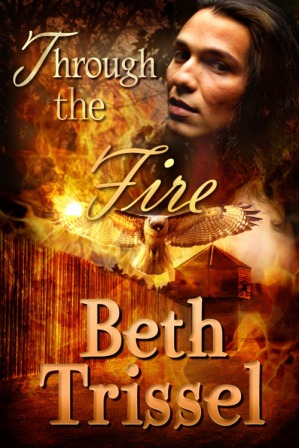














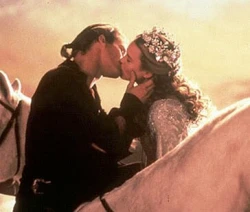





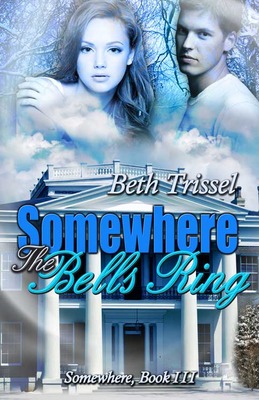


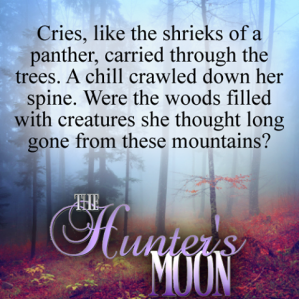
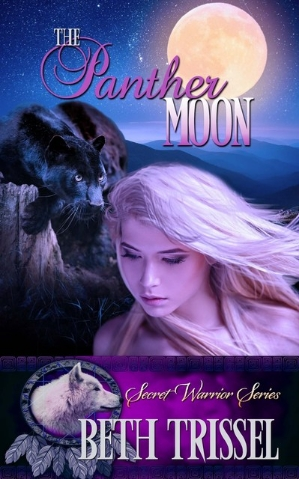


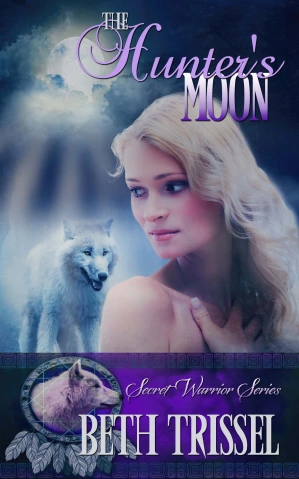


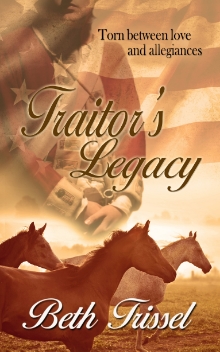
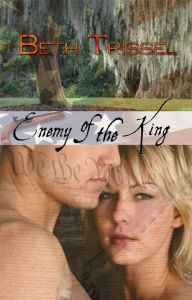
















Celia, your characters are delightful. The type who stays with you after you read the story. I love this sentence:”you think you have something forever and bang, it’s all gone.” So powerful. It sets the mood for the book. Great pictures that shows the way people lived in the beginning of the 20th century.
LikeLike
I agree, her characters are very ‘real’ and memorable, as is her place.
LikeLike
Wow! Celia, I love your excerpt. This sounds like such a good book. I always think of oil when I think of Texas, so it’s interesting to know they once mined coal there.
LikeLike
I truly enjoyed learning about Thurber. I can’t imagine living in a time when someone else “owned” everything around me. Your Annie sounds like a practical dreamer. She acts on her feelings and helps others, but she also dreams of – more. Max is a true hero – strong and compassionate – and he has longings of his own, to have a place to call home, to have people who love him. You’ve just captured what we all want. Home and love. Can’t wait to read it!
LikeLike
Celia, it’s on my Kindle and is next up. I can tell I will be goofing off soon so I can read this book. Recognizing sites in the book will be fun.
LikeLike
Good morning, Beth–and my lovely friends.–I will return and reply to each and every comment. For the moment-I am tied up with those “must do” house chores…really…they cannot wait. But I can’t wait to read all the comments–and even for the second time.
LikeLike
Interesting history and great story fodder! These characters sound as charming as the rest of your books!
LikeLike
Celia, I think every state has its share of ghost towns. I know, here in Wisconsin, there are several communities that aren’t anymore. Some were mining and lumber towns up north. Great excerpt from your book!
LikeLike
Thank you, Mona..your comments mean a lot to me. Praise from very good authors really are priceless.
LikeLike
Gail–it does suprise prople to learn Texas had big coal-mining operations. You know you have a lot when the labor unions find you…and that has a part in this story. Thanks for coming by.
LikeLike
Maggie–you hit on everything vital. Yes, Annie does dream, as she sits on the porch steps and wishes on the moon. Max..if you read the book, you’ll see why he’s lost his way. Company towns? Texas was filled with them into the 50s. I don’t think any exist now…not sure…but for many workers, they were life savers. Thanks!
LikeLike
Caroline–Oh, I cannot wait for you to read it! You’ll recognize so many places. Annie’s home is out in what is now Salesville, a one-road village with nothing commercial…just a church. It’s 8 Mi. N. of Mineral Wells. I bet you know where that is. Erath county is where Stepheville is. And I made up the small town of Brazos City, sort of patterning it after Palo Pinto, the town, which is the county seat of Palo Pinto. Most people think MW is the capital. But no. I’m so pleased you have it on your Kindle. The print book is larger than our usual size of TWTP books, and other. I think it makes it very special.
LikeLike
Loraine–I thank you very much for your wonderful comment–
LikeLike
Ilona…I’m glad you like the excerpt. You’re right about the ghost towns. If you know where to look, some are very intriguing.
LikeLike
Okay… so in defence of the dead children… someone, I’m sure, must work out why so many died! Enjoyable read, Celia, thanks. Makes me want to time-shift!
LikeLike
Thanks for sharing the back history of your new book, which is on my wish list. We have/had company towns in the Uk too.
LikeLike
Celia, you always have the most interesting historical posts. Love to read them!
LikeLike
Nancy–I’ve had this information on a couple of other blogs some time ago, and not one person caught the statement about the dead babies. I, too, would love to know. I tried to find out by doing research, but could find nothing. So, you’re the only one who thought to be concerned. I started to delete that line because it really didn’t go with the text. But…like you…I wonder about that fact. Thanks for your comment..
LikeLike
Hi, Sherry! Oh, yes, company towns have always been around, in one form or another. For the oil field workers in the first half of the 20th century, those company houses were a godsend. They were tiny…but many of us in those years lived in very small homes. Thanks..
LikeLike
It’s always so interesting to find how other authors get story ideas. Thurber sounds like an interesting town-that-once-was. Those kinds of places do haunt us. who lived there? where did they go? Who did they fall in love with? Were they happy? Still is sometimes much more exciting than hustle and bustle. Great blog, Celia.
LikeLike
Thank you, Patsy–you are very kind.
LikeLike
Sarah–thank you! That’s exactly how I feel–all those same questions ran through my mind when I began to write Wish for the Moon. My main character was Annie, and she lived in another county on the family farm. So, how was I going to use the town of Thurber into the story? It came easy, and the town became the perfect vehicle for Annie’s adventures.
LikeLike
Such fascinating history, Celia. I too wondered about the dead children, wondered if perhaps the introduction of electricity or some other “modernization” may have unintentionally caused the tragedy. Thurber sounds like a perfect stage for a story, especially in the hands of a talented storyteller. Annie is one lucky character.
LikeLike
Pat–I loved the history of Thurber, and it’s gratifying that others think so, too. There must have been something in particular that caused the high mortality rate in young children. The coal dust? The smoke? The water?I don’t know–wish we did. Thanks so much for your comment.
LikeLike
Really enjoyed your post, Celia. There’s a lot of really interesting information in it. Loved your blurb and excerpt. Hope you have lots of sales. 😮
LikeLike
Celia, I have read this book and it is one of my favorites of all your books. The story is poignant and the characters are memorable. And the beautiful cover is just right for the story. I wish this book the success it deserves. Thank you for sharing this story behind the story. Linda
LikeLike
Pingback: The Story Behind Texas Historical Sweet Romance Wish for the … | Partner Connection
Thank you, Katherine…I hope I have a lot of sales, too.!
LikeLike
Hi, Linda, my faithful friend. Thanks for your thoughts…I liked the story behind the story almost as much as the story. Thanks to Beth I got to put it together.
LikeLike
I love the story behind the story, too, Celia. The photos are very evocative. Good luck! 🙂 x
LikeLike
Hi, Sheryl–it’s so good to see you–gorgeous as ever. How are you? Stop by the Spa girls and tell us what you’re up to…Thanks so much for stopping by.
LikeLike